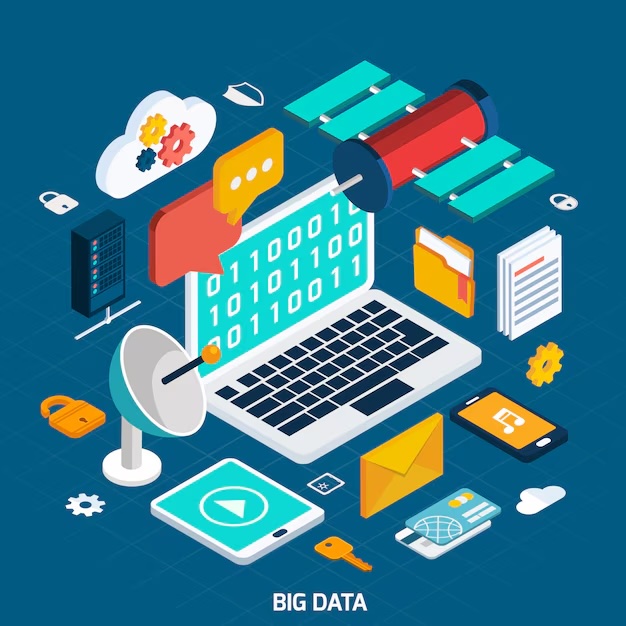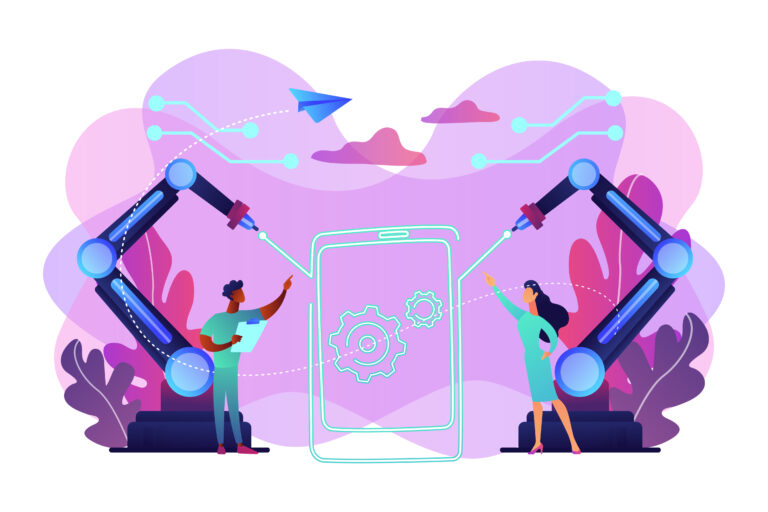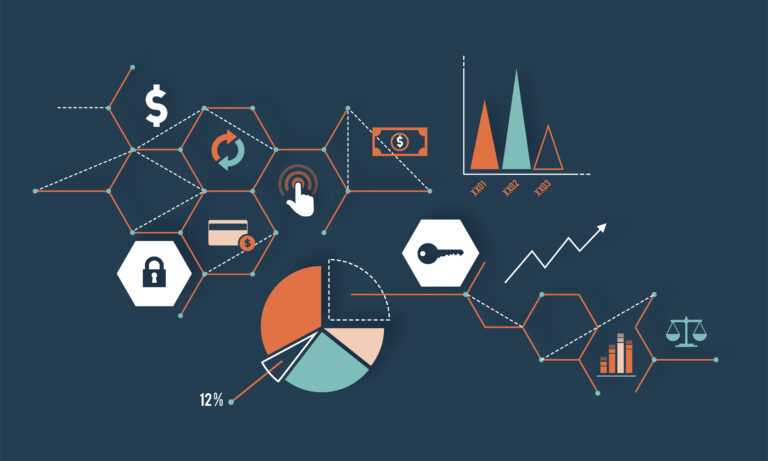Tools and Trends in AI Marketing
The Fundamentals of AI Marketing
Imagine a world where your marketing efforts are not just targeted, but precisely predicted. The marketing landscape is no longer a game of chance. We’re on the brink of a revolution where artificial intelligence isn’t just a buzzword, but the driving force behind campaigns that resonate with uncanny accuracy.
In this comprehensive guide, we’ll demystify AI marketing, break down its core components, and explore the transformative benefits it offers. We’ll delve into crafting winning AI strategies, navigating the potential pitfalls, and spotlighting the tools that can elevate your marketing game.
Understanding AI Marketing
What is AI Marketing?
AI marketing leverages artificial intelligence technologies to automate, personalize, and optimize marketing campaigns. By analyzing vast datasets, AI algorithms can identify patterns, predict consumer behavior, and generate data-driven insights to improve marketing ROI. From content creation to campaign optimization, AI is transforming how businesses connect with their target audience.
Key Components of AI Marketing
Machine learning, a subset of AI, plays a crucial role in AI marketing. It enables algorithms to learn from data, improve their accuracy over time, and make predictions about future outcomes. Natural language processing (NLP) empowers AI systems to understand and interpret human language, enabling chatbots to engage in conversations and analyze customer sentiment.
Benefits of AI in Marketing
The adoption of AI in digital marketing offers numerous benefits, including improved customer segmentation, personalized content recommendations, and automated ad campaign optimization. By automating repetitive tasks, AI frees up marketers to focus on strategic initiatives, such as developing creative campaigns and fostering customer relationships.
- Machine learning empowers marketers to analyze data and predict future trends.
- By understanding customer behavior patterns, businesses can personalize marketing messages and offers, leading to higher engagement and conversion rates.
- This data-driven approach helps optimize marketing campaigns in real-time, ensuring maximum ROI.
Lessons Learned from Businesses that Have Implemented AI Marketing
- Start with a clear strategy: This involves identifying specific marketing challenges, selecting the right AI tools, and integrating AI seamlessly into existing workflows. It’s crucial to establish clear goals, define key performance indicators (KPIs), and continuously monitor and evaluate the performance of AI-powered campaigns. Define your goals, identify areas where AI can make the biggest impact, and choose the right AI marketing tools for your needs.
- Data is key: Ensure you have access to high-quality data to train your AI models effectively.
- Focus on personalization: Leverage AI to deliver personalized experiences that resonate with your target audience.
- Embrace experimentation: Continuously test and refine your AI-powered campaigns to optimize their performance.
- Many businesses fall into the trap of investing in AI marketing tools without a clear understanding of their needs and capabilities. Before adopting any technology, it’s essential to thoroughly assess your requirements, research different vendors, and choose solutions that align with your specific marketing goals and budget.

Industry-Specific AI Marketing
In various industries, AI algorithms now analyze vast datasets to identify high-value leads, allowing marketing teams to focus their efforts on the most promising prospects. AI-powered predictive analytics forecast future trends and customer behavior, empowering businesses to make data-driven decisions and optimize their marketing campaigns. Here are few specific examples:
1. AI Marketing in E-commerce: AI-powered recommendation engines analyze customer data to suggest products, increasing sales and customer satisfaction. AI chatbots provide instant customer support, answering queries and resolving issues in real-time.
2. AI Marketing in Retail: AI is reshaping the retail industry, empowering businesses to create personalized and engaging customer experiences. AI-powered personalization engines tailor product recommendations and offers based on individual customer preferences, driving sales and loyalty. AI-enabled chatbots provide instant customer service, answering questions, and resolving issues in real-time.
AI Marketing Tools and Trends
AI-Powered Content Creation
- Rava AI: This comprehensive platform goes beyond content creation. Rava AI combines content creation with marketing automation features, allowing you to generate content, schedule social media posts, and manage your email marketing campaigns within a single interface. It’s a one-stop shop for content creators and marketers who want to streamline their workflow.
AI Marketing Tools for Data Analysis
- Google Analytics: This free and powerful tool provides invaluable insights into your website traffic and user behavior. By analyzing data like bounce rates, time on page, and conversion rates, you can gain a deeper understanding of your audience and identify areas for improvement in your marketing campaigns.
AI Marketing Tools for Personalization
- Dynamic Yield: This AI platform specializes in website personalization. It analyzes visitor behavior and uses real-time data to personalize your website content, product recommendations, and promotions tailored to each visitor’s unique preferences.
AI-Powered Social Media Management
- Buffer: This popular social media management tool leverages AI to suggest optimal posting times based on your audience’s activity.
AI-Driven Customer Service Tools
- Intercom: This platform uses AI-powered chatbots to provide instant customer support, answer frequently asked questions, and even qualify leads.
- Freshchat: Similar to Intercom, Freshchat offers AI-driven chatbots for customer support, along with features like live chat and knowledge base management.
AI-Powered Email Marketing Tools
- Klaviyo: This platform uses AI to personalize email campaigns based on customer data, improving open rates and click-through rates.
AI-Powered Image and Video Editing Tools
- Canva: While not exclusively AI-driven, Canva offers AI-powered features like automatic background removal and design suggestions.
AI-Powered Voice Assistants and Chatbots
- Amazon Alexa: Integrate Alexa into your marketing strategy to provide voice-activated customer support or create interactive experiences.
- Google Assistant: Similar to Alexa, Google Assistant can be used to create voice-activated experiences and interact with customers.
By exploring these additional categories of AI marketing tools, you can unlock even more opportunities to streamline your workflows, enhance your campaigns, and achieve your marketing goals.
Future of AI Marketing
Predictions and Future Trends in AI Marketing
The future of AI in marketing is brimming with possibilities. As AI technology continues to evolve at an unprecedented pace, we can anticipate even more sophisticated and impactful applications in the realm of marketing. The future of AI in digital marketing is bright. As AI technology evolves, we can expect even more sophisticated tools and applications.
- Hyper-personalization: AI will enable marketers to deliver highly personalized experiences to individual customers, tailoring messages, offers, and content based on their unique preferences, behaviors, and needs.
- Predictive analytics: By analyzing vast datasets, AI algorithms can predict future customer behavior with remarkable accuracy, empowering marketers to anticipate needs, identify potential churn risks, and proactively optimize campaigns for maximum impact.
- Voice and visual search optimization: As voice assistants and visual search technologies gain prominence, AI will play a crucial role in optimizing marketing content to rank well in these emerging search modalities.
- AI-powered chatbots will become increasingly adept at handling complex customer interactions, providing seamless and personalized experiences.
The future of marketing is undeniably intertwined with AI. However, the journey requires careful navigation. A well-defined strategy is crucial, ensuring that businesses select the right tools and technologies to maximize their AI investments. From machine learning algorithms that refine customer segmentation to predictive analytics that anticipate market trends, the possibilities are boundless.
The use of AI in marketing will continue to grow, enabling businesses to reach their target audiences more effectively and efficiently. By embracing these advancements and integrating them strategically, businesses can unlock unprecedented opportunities for growth, efficiency, and customer satisfaction.
Real-world success stories stand as testaments to the power of AI, showcasing its ability to drive engagement, optimize campaigns, and deliver exceptional results across industries. As we look ahead, the future of AI marketing promises even greater innovation, blurring the lines between the digital and physical realms. Embracing this transformative technology is no longer optional; it’s an imperative for businesses seeking to thrive in an increasingly competitive landscape.
Frequently Asked Questions (FAQs)
Q: What exactly is AI marketing, and how does it differ from traditional marketing approaches?
A: AI marketing leverages artificial intelligence technologies to automate, personalize, and optimize marketing campaigns. Unlike traditional methods that often rely on guesswork, AI analyzes vast datasets to identify patterns, predict consumer behavior, and generate data-driven insights, leading to more effective and efficient marketing strategies.
Q: I’m new to AI. Are there any beginner-friendly AI marketing tools available?
A: Absolutely! Platforms like rava.ai simplify content creation with AI and ideal for beginners.
Q: How can I ensure I’m selecting the right AI marketing tools for my business needs and not just investing in hype?
A: Before investing in any AI tool, thoroughly assess your specific marketing challenges and goals. Research different vendors, compare features and pricing, and choose solutions that align with your budget and requirements. Don’t hesitate to request demos or trials to test the tools firsthand.
Q: Can you provide a real-world example of a successful AI-driven marketing campaign?
A: Netflix’s personalized recommendation engine is a prime example. By analyzing user viewing patterns, AI suggests relevant content, enhancing user experience and driving engagement, which has contributed significantly to their subscriber retention.
Q: What are some key takeaways businesses can learn from those who have already implemented AI marketing?
A: Start with a clear strategy outlining your goals and areas where AI can make the biggest impact. Ensure you have access to high-quality data to train your AI models effectively. Prioritize personalization by leveraging AI to deliver tailored experiences. Finally, embrace experimentation and continuous testing to optimize your AI-powered campaigns.
Q: How is AI expected to shape the future of marketing?
A: AI will usher in an era of hyper-personalization, where marketing messages, offers, and experiences are tailored to individual customer preferences. Predictive analytics will become even more sophisticated, enabling marketers to anticipate needs and optimize campaigns proactively. Additionally, AI will play a crucial role in optimizing content for voice and visual search, which are gaining prominence.
Q: What is the most important step businesses should take today to prepare for the future of AI in marketing?
A: Embrace a data-driven mindset. Start gathering and organizing your data to build a strong foundation for AI implementation. Explore available AI tools and consider running pilot projects to gain practical experience and identify areas where AI can bring the most value to your marketing efforts.
Citations:
- https://www.marketingevolution.com/marketing-essentials/ai-markeitng
- https://sproutsocial.com/insights/ai-marketing/
- https://www.eweek.com/artificial-intelligence/ai-marketing-strategy/
- https://www.jasper.ai/blog/ai-for-marketing
- https://www.forbes.com/sites/bernardmarr/2022/09/09/artificial-intelligence-and-the-future-of-marketing/
- https://hbr.org/2021/07/how-to-design-an-ai-marketi







